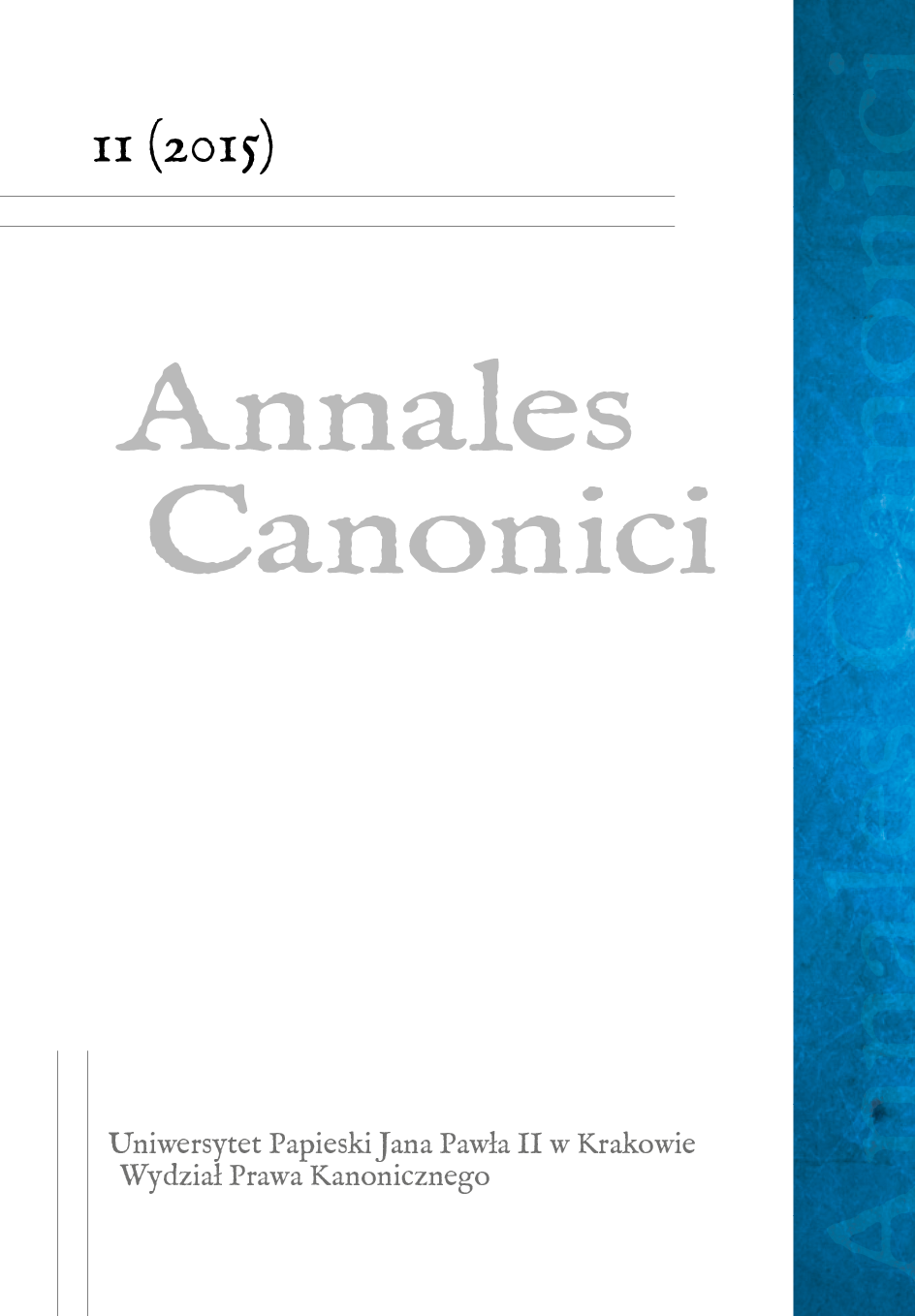Władza rodzicielska a wolność religijna dziecka w prawie kanonicznym
Parents’ authority and child’s religious freedom in canon law
Author(s): Elżbieta SzczotSubject(s): Canon Law / Church Law
Published by: Wydawnictwo Naukowe Uniwersytetu Papieskiego Jana Pawła II w Krakowie
Keywords: parents’ authority; child; religious freedom; canon law
Summary/Abstract: It is the greatest responsibility of parents to bring up their children. Natural law and laws established by the Church are a source of this obligation. Since parents give life to their child, they are responsible for his physical, social, cultural, religious and moral upbringing. The Catholic Church obliges the faithful to pass on faith to their children. The Church does so already at the time of the marriage ceremony when the bride and the groom are asked whether they will accept children lovingly from God and bring them up according to the law of Christ and his Church. To fulfil this obligation, i.e. of religious education, parents are granted with parental authority. Children should give them obedience. Yet, parents’ wishes not always agree with children’s will. Pursuant to can. 865 § 1 and can. 852 § 1 of the Code of Canon Law of 1983 a child who has completed seven years of age and has not been baptized manifests himself the intention to be baptized. However, anyone who has completed 14 years of age may oppose the wishes of the parents under can. 111 § 2 and can. 112 § 2 and choose to be baptized in the Latin Church or in any other ritual Church (of course, this applies to the Eastern Catholic Churches) to which he wants to belong, or to return to the Latin Church if parents chose another ritual Church.
Journal: Annales Canonici
- Issue Year: 11/2015
- Issue No: 1
- Page Range: 217-234
- Page Count: 18
- Language: Polish

